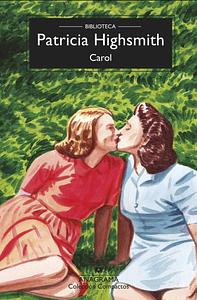Take a photo of a barcode or cover
slow-paced
emotional
tense
medium-paced
Plot or Character Driven:
Character
Strong character development:
Yes
Loveable characters:
Yes
Diverse cast of characters:
No
Flaws of characters a main focus:
Yes
fast-paced
dark
emotional
hopeful
mysterious
slow-paced
Plot or Character Driven:
Character
Strong character development:
Yes
Loveable characters:
Yes
Diverse cast of characters:
Complicated
Flaws of characters a main focus:
No
adventurous
emotional
tense
medium-paced
Plot or Character Driven:
Character
Strong character development:
Yes
Loveable characters:
Complicated
Diverse cast of characters:
N/A
Flaws of characters a main focus:
No
emotional
hopeful
reflective
tense
slow-paced
Plot or Character Driven:
Plot
Strong character development:
No
Loveable characters:
No
Diverse cast of characters:
No
Flaws of characters a main focus:
Yes
If these weren’t fictional characters, I’d be convinced that Therese Belivet is actually Eleanor Vance from The Haunting of Hill House reincarnated. Don't tell me that I’m wrong.
Oh, my poor obsessive loser gay girls with mommy issues… You know, I hadn’t watched Carol yet, but after I finished this book, I thought it was about time. And I ended up turning it off after half an hour.
See, Therese is frustrating in her nothingness. And I don’t mean that she doesn’t have a life of her own, but she is so, so… nineteen years old. She orders the same food other people order. She says yes when she wants to say no. She doesn’t fill silences. She doesn’t make small talk. At points she reminded me of Bella in New Moon, moping, lost, bit of a wet dog. In the movie she seems almost confident and chipper in comparison - and here’s something important: she doesn’t mail Carol her forgotten gloves, and Carol doesn’t invite her to lunch out of nowhere.
She sends Carol a Christmas card. She’s so immediately obsessed with Carol that she sends her a card, and that unprompted boldness is something that balances out Therese as a character, that she actually goes for what she wants, whether it’s Carol or a job in stage designing. Carol invites her to lunch because the gesture is nearly impossible to misread; not because she’s on the hunt for an affair. Since I’m one of those people who is obnoxious about movie adaptations, I’m afraid the movie lost me and I’m not sure I’ll ever continue watching it.
Anyway. The historical importance of this is undeniable; I can see why it’s a sapphic cult classic, and it was beautifully written without falling into purple prose.
However, it was also rather dull. Carol is a closed-off person trying to get out of an unhappy marriage, with a kid in the middle; Therese looks at her through starry eyes without knowing anything of substance about her, nor interest in being known. To quote Air Supply, she was making love out of nothing at all - and then becoming sad and frustrated when Carol was withholding or frustrated herself.
Given the time it was published, the physical affection was also very subtle. I don’t often advocate for smut in books, but having some lesbian sex on page would have improved it ;)
The story picked up at the end with some suspense and tension, and I was pleased with the ending. Overall, I’m happy I’m read it, but it didn’t become a favourite!
Oh, my poor obsessive loser gay girls with mommy issues… You know, I hadn’t watched Carol yet, but after I finished this book, I thought it was about time. And I ended up turning it off after half an hour.
See, Therese is frustrating in her nothingness. And I don’t mean that she doesn’t have a life of her own, but she is so, so… nineteen years old. She orders the same food other people order. She says yes when she wants to say no. She doesn’t fill silences. She doesn’t make small talk. At points she reminded me of Bella in New Moon, moping, lost, bit of a wet dog. In the movie she seems almost confident and chipper in comparison - and here’s something important: she doesn’t mail Carol her forgotten gloves, and Carol doesn’t invite her to lunch out of nowhere.
She sends Carol a Christmas card. She’s so immediately obsessed with Carol that she sends her a card, and that unprompted boldness is something that balances out Therese as a character, that she actually goes for what she wants, whether it’s Carol or a job in stage designing. Carol invites her to lunch because the gesture is nearly impossible to misread; not because she’s on the hunt for an affair. Since I’m one of those people who is obnoxious about movie adaptations, I’m afraid the movie lost me and I’m not sure I’ll ever continue watching it.
Anyway. The historical importance of this is undeniable; I can see why it’s a sapphic cult classic, and it was beautifully written without falling into purple prose.
However, it was also rather dull. Carol is a closed-off person trying to get out of an unhappy marriage, with a kid in the middle; Therese looks at her through starry eyes without knowing anything of substance about her, nor interest in being known. To quote Air Supply, she was making love out of nothing at all - and then becoming sad and frustrated when Carol was withholding or frustrated herself.
Given the time it was published, the physical affection was also very subtle. I don’t often advocate for smut in books, but having some lesbian sex on page would have improved it ;)
The story picked up at the end with some suspense and tension, and I was pleased with the ending. Overall, I’m happy I’m read it, but it didn’t become a favourite!
slow-paced
Plot or Character Driven:
Character
Strong character development:
No
Loveable characters:
No
Flaws of characters a main focus:
Yes
adventurous
emotional
inspiring
medium-paced
Plot or Character Driven:
Character
Strong character development:
Yes
Loveable characters:
Yes
Diverse cast of characters:
Complicated
Flaws of characters a main focus:
Yes
it's undeniably & unapologetically queer. There's never a query on the humanity or the reasoning. It just simply is. And yet everything else is uncertain. It's told through the lens of an unreliable narrator Therese who is self-centred and frankly a bit whiny. The romance with the "shadow" character, and it's a surprise to each reader who Carol really is & what sides of the woman are most clear (is she condescending & predatory? or is she cautious & careful?) Is Therese even clear about who Carol is at her core?
What attractive to me about this book is the fact it's not a political statement or persuasion on one viewpoint or another. In fact during this time, it was illegal. (Yet again, Highsmith writes about crimes, but in a very different side.) but it's a story about a blinding love. There's an intimacy here that's exposing and vulnerable that both characters get to experience together - arguably for the first time, almost like both are having their own "coming-of-age" moments despite the age gap.
I do not think this story warrants the claim of "first happy ending though". It's neutral regarding their continuing love. It's blatantly vague & to me, that's what makes this story worth its salt. Yet it's simply tragic bc of what, or rather who, Carol surrenders.
What attractive to me about this book is the fact it's not a political statement or persuasion on one viewpoint or another. In fact during this time, it was illegal. (Yet again, Highsmith writes about crimes, but in a very different side.) but it's a story about a blinding love. There's an intimacy here that's exposing and vulnerable that both characters get to experience together - arguably for the first time, almost like both are having their own "coming-of-age" moments despite the age gap.
I do not think this story warrants the claim of "first happy ending though". It's neutral regarding their continuing love. It's blatantly vague & to me, that's what makes this story worth its salt. Yet it's simply tragic bc of what, or rather who, Carol surrenders.





